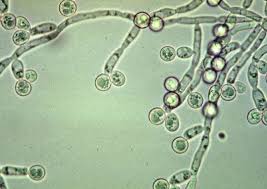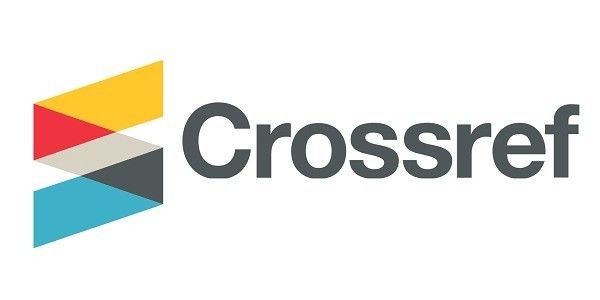Comparative Antifungal Efficacy of Ketoconazole and Nystatin on Chlamydospore Production in Candida albicans Isolated from Oral Lesions in Cancer Patients
- Authors
-
-
Salahaldin Alfurjany
Department of Microbiology, Faculty of Science, Sebha University, Sebha, LibyaAuthor -
Shamsi Shamsi
Department of Medical Laboratory, Faculty of Medical Technology, Sebha University, Sebha, LibyaAuthor -
Huda Ibrahim
Department of Botany, Faculty of Science, Sebha University, Sebha, Libya. Department of Plant Protection, Faculty of Agriculture, Sebha University, Sebha, LibyaAuthor -
Hanaa Al-Saidi
Department of Microbiology, Faculty of Science, Sebha University, Sebha, LibyaAuthor -
Ghada Al-Amin
Department of Microbiology, Faculty of Science, Sebha University, Sebha, LibyaAuthor
-
- Keywords:
- Candida albicans; Chlamydospores; Oral Candidiasis; Nystatin; Ketoconazole; Antifungal Efficacy; Immunocompromised Hosts.
- Abstract
-
Candida albicans threatens immunocompromised patients, partly via chlamydospores—dormant, stress-tolerant forms. Reducing these structures may limit persistence and relapse. We compared nystatin (polyenic membrane binder) versus ketoconazole (azole ergosterol-synthesis inhibitor) for suppressing chlamydospore production by C. albicans from cancer-patient oral lesions. Twenty isolates were cultured on cornmeal agar + 1% Tween-80 and exposed to nystatin or ketoconazole at 0.5–10 µg/mL. After 24–48 h at 30 °C, chlamydospores were stained and counted microscopically (spores/10 HPF). ANOVA with Tukey post-hoc tested drug, concentration, and interaction (p<0.05). Ketoconazole reduced chlamydospores more than nystatin at every concentration, with a clear dose response (≈54 to ≈29 spores/10 HPF from 0.5 to 10 µg/mL). Nystatin showed limited suppression at low doses and only modest declines at 5–10 µg/mL. At 10 µg/mL, ketoconazole achieved ~45% reduction from baseline versus ~30% with nystatin; 19/20 isolates favored ketoconazole. ANOVA showed significant main effects and drug-concentration interaction (p<0.001). Ketoconazole is superior to nystatin for suppressing C. albicans chlamydospore formation in vitro, supporting systemic azoles as more effective inhibitors of this persistence mechanism. Clinically, safer azoles (e.g., fluconazole) may better prevent recurrent or invasive disease in high-risk patients than topical nystatin alone. Nystatin remains useful for localized thrush but may not adequately block chlamydospore formation. In cancer patients with recurrent oral candidiasis or risk of dissemination, consider early systemic azole therapy and confirm in future studies whether aggressive chlamydospore suppression improves outcomes.
- References
- Cover Image
-

- Downloads
- Published
- 2025-10-29
- Issue
- Volume 1, Issue 4, 2025
- Section
- Articles
How to Cite
Similar Articles
- Hosam Elarabi, Salem Salem, Rajaa Fadel, Wafa Abozaid, Abdullah Ahmad, Ahmed Shtawa, Moftah Ali, Assessment of Fluoride Concentration in Drinking Water and Its Correlation with Dental Caries in Primary School Children in Gharyan, Libya , Razi Medical Journal: Volume 1, Issue 2, 2025
- Sara Taeb, Ghufran Dehoom, Khuloud Ajaj, Comparison of the Efficacy of Inositol-Containing Medication Only versus Metformin and Inositol among Libyan Infertile Women with Polycystic Ovarian Syndrome , Razi Medical Journal: Volume 1, Issue 3, 2025
- Nowar Bhari, Hamed Bogdadi, Shamsi Saad, Fagonia glutinosa from Libya as a Potential Source of Lead Compounds: GC-MS Characterization of Metabolites with Antimicrobial and Anticancer Activities , Razi Medical Journal: Volume 1, Issue 3, 2025
- Nahla Labyad, Masoud Kahmasi, Amjad Mansuor, Awareness, Perception, and Attitudes of Medical Professionals Toward Complementary and Alternative Medicine Devices in Rheumatism: A Survey of Tripoli Community Pharmacies , Razi Medical Journal: Volume 1, Issue 4, 2025
- Fozia Aborayana, Fadila Elghadban, Souad Aboalqasim, Insulin-Dependent Diabetes Mellitus and the Pregnancy Outcomes: A Retrospective Study in the Pediatrics Department of Tripoli University Hospital – Tripoli, Libya , Razi Medical Journal: Volume 1, Issue 2, 2025
- Salem Swieb, Mohamed Elzwawi, Malik Delheen, Evaluating Outcomes of Percutaneous Nephrolithotomy Versus Flexible Ureteroscopy for Renal Calculi: A Retrospective Observational Study in Misrata, Libya , Razi Medical Journal: Volume 1, Issue 4, 2025
- Mahmud Abushhewa, Mohamed Agilla, Ashraf Naass, Khadega Alazoumi, Abdulati Salem, Taj Al-Din Jaber, Mohammed Abdulqadir, Knowledge, Attitude, and Practices about Antibiotic Misuse among Libyan Community: A Cross-Sectional Survey , Razi Medical Journal: Volume 1, Issue 3, 2025
- Mohamed Zeglam, Mohamed Altier, Hala Alhawij, Mohamed Abuagila, A Cross-Sectional Assessment of Bacterial Contamination in Fixed Prosthodontic Impressions Transferred from Clinics to Dental Laboratories: A Study in Tripoli, Libya , Razi Medical Journal: Volume 1, Issue 3, 2025
- Munir Abdulmoula, Mustafa El-Ahmar, A Five-Year Study Comparing the Millard and Tennison Technique for Unilateral Cleft Lip Repair , Razi Medical Journal: Volume 1, Issue 3, 2025
- Nadia Alrawaiq, Fatima Younis, Mabrouka Ismail, Identification and Evaluation of Drug-Related Problems in Patients with Reduced Kidney Function: A Retrospective Study , Razi Medical Journal: Volume 1, Issue 3, 2025
You may also start an advanced similarity search for this article.








